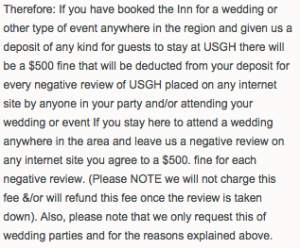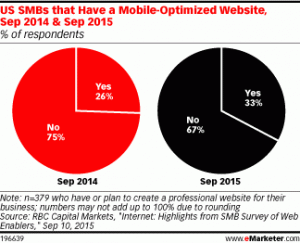The internet has changed everything. You might say that it’s put everything out in the open, with very little left to the imagination.
Before the web and social media, every customer interaction was mostly a private matter between the business and the customer. Now it’s likely to be written up on social media, a customer review site, or online forum. Everything that’s online is findable by your customers and potential customers. Consumers can decide to avoid doing business with you if they don’t like what they read about you on the web.
Before the web and social media, consumers’ thoughts, opinions, feelings, education and employment history, relationship status, likes, dislikes, etc. were mostly private. Now, it’s all out there. A business owner can use online marketing tools to target advertising based on a consumer’s preferences.
It’s safe to say the relationship between business owners and consumers has changed for better, and for worse. Small businesses, take note:
1. Businesses Can’t Be Shy
Consumers expect every business to be social on social media. If you don’t have a presence on social media and social media icons on your website, you look a little weird…like you don’t know what’s going on. Create a Facebook page, a Twitter page, a Google+ profile and then manage them. If you don’t have the time, the knowledge or the interest, find someone to do it for you.
2. Consumers Want to Share their Thoughts About Your Business
Before the web, a customer might think to tell a friend about a great meal at a local restaurant or describe a terrible experience with a dry cleaner with little chance of impacting the business’s reputation or bottom line. Now, consumers share their experiences and opinions with a much larger group of people on the web. Many consumers take to the web to report just about every experience with every business they encounter…you’ve heard of Yelp, right? What consumers say online about your business can help, or hurt. A flattering review is great marketing tool. A bad review can keep customers away. The smart business owner monitors the web for comments about his or her business.
3. Customers Expect Instant Gratification
Customers expect information now! No, you don’t have to answer your phone 24/7, but you do need to have a website with easy navigation and details about your products and services to give people information when you’re not available. Add a “contact us” form so people can reach out to you even when they know you’re not open for business. You can set up an email campaign and send an instant response to those who fill out your contact form. Social media is another way for consumers to connect with you, but keep in mind that customers expect a very quick response on social media.
4. Every Business Has a Shot at Fame (or Infamy)
Before the web, there was about a zero percent chance that a small business would be known to anyone other than the local community. Now, an incident at a small business can get mentioned on Twitter, Facebook, Yelp and so on, and go viral. It happens. People tweet everything, and if a business owner or his/her employee does something amazing, horrible, rude, kind, peculiar…anything out of the ordinary, the story can spread like crazy and even end up on CNN. Google “Rocco’s Little Chicago Pizzeria” and see the coverage they got for their response to Arizona Senate Bill 1062. And a boutique hotel in Hudson, New York made national news for its policy regarding negative customer reviews.
The policy statement has since been removed from the website. The Union Street Guest House recieved plenty of (mostly negative) publicity, including on major news sites like CNN, Time and The Washington Post. (Some say there’s no such thing as bad publicity. You’ll have to be the judge of that.)
5. A Small Local Business Can Do Business Worldwide
A tiny shop in a tiny town had no chance of serving anyone but the locals until the web came along. A website can make a small business HUGE. It takes SEO to get good rankings in search results, but when you get those rankings, theoretically, you can be found by consumers anywhere in the world.
6. The Rise of Interactive Advertising
Once upon a time, a business could put an ad in the phonebook and call it a day. There was no interaction between the ad, the consumer and the business owner. There was no data on the ads’ performance in terms of leads and conversions. Online advertising has the capacity to be interactive and, it’s completely measurable. A business owner can know when a consumer has clicked on a specific ad and arrived on his or her website. A business owner can know when a specific ad has prompted a consumer to call. Once a consumer clicks through to the business owner’s website, he or she can use a PPC retargeting campaign to up the chance of conversion. A caution to business owners: Before you launch a PPC campaign, make sure you have web lead and phone call tracking in place. Otherwise, you will have no idea if your money is well spent—much like the days of phone book advertising.
Conclusions
All of these changes have happened in a relatively short time—it’s hard to keep up! That’s why many small businesses opt to outsource SEO, social media, online reputation management, PPC, email marketing and other online marketing campaigns. A solid online marketing agency will keep an eye on industry trends and keep you moving in the right direction.
Business Articles | Business 2 Community
(432)









